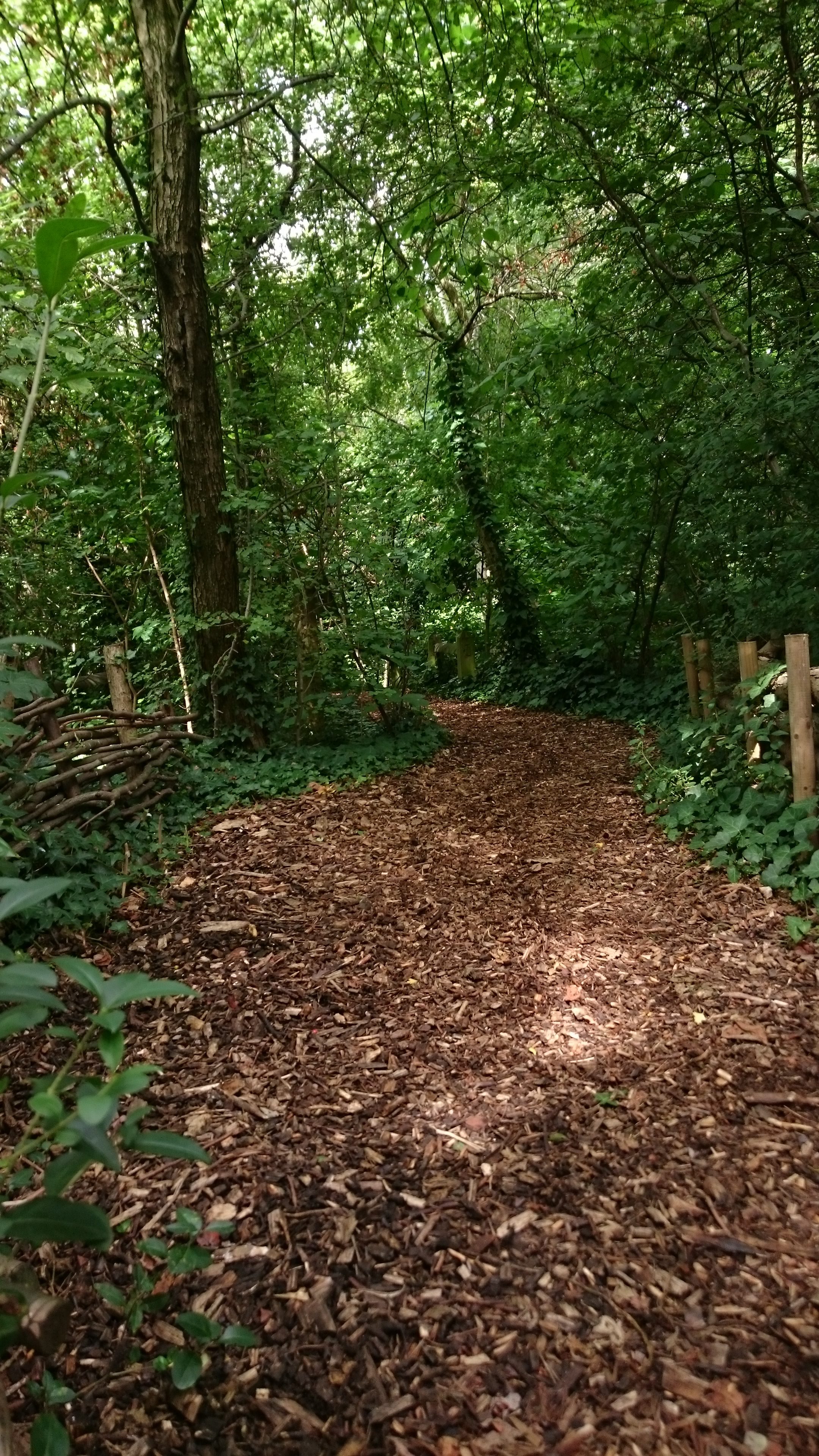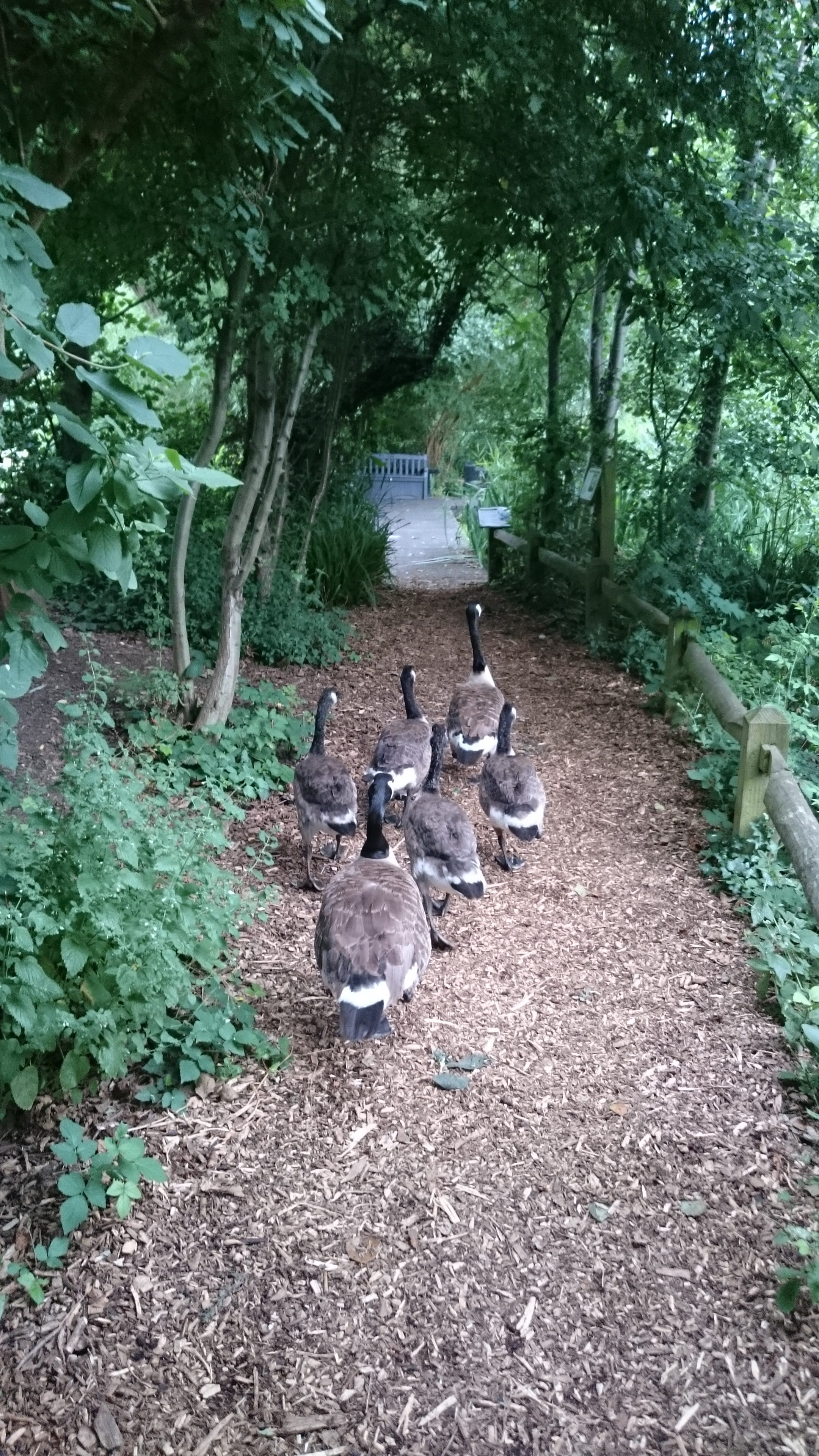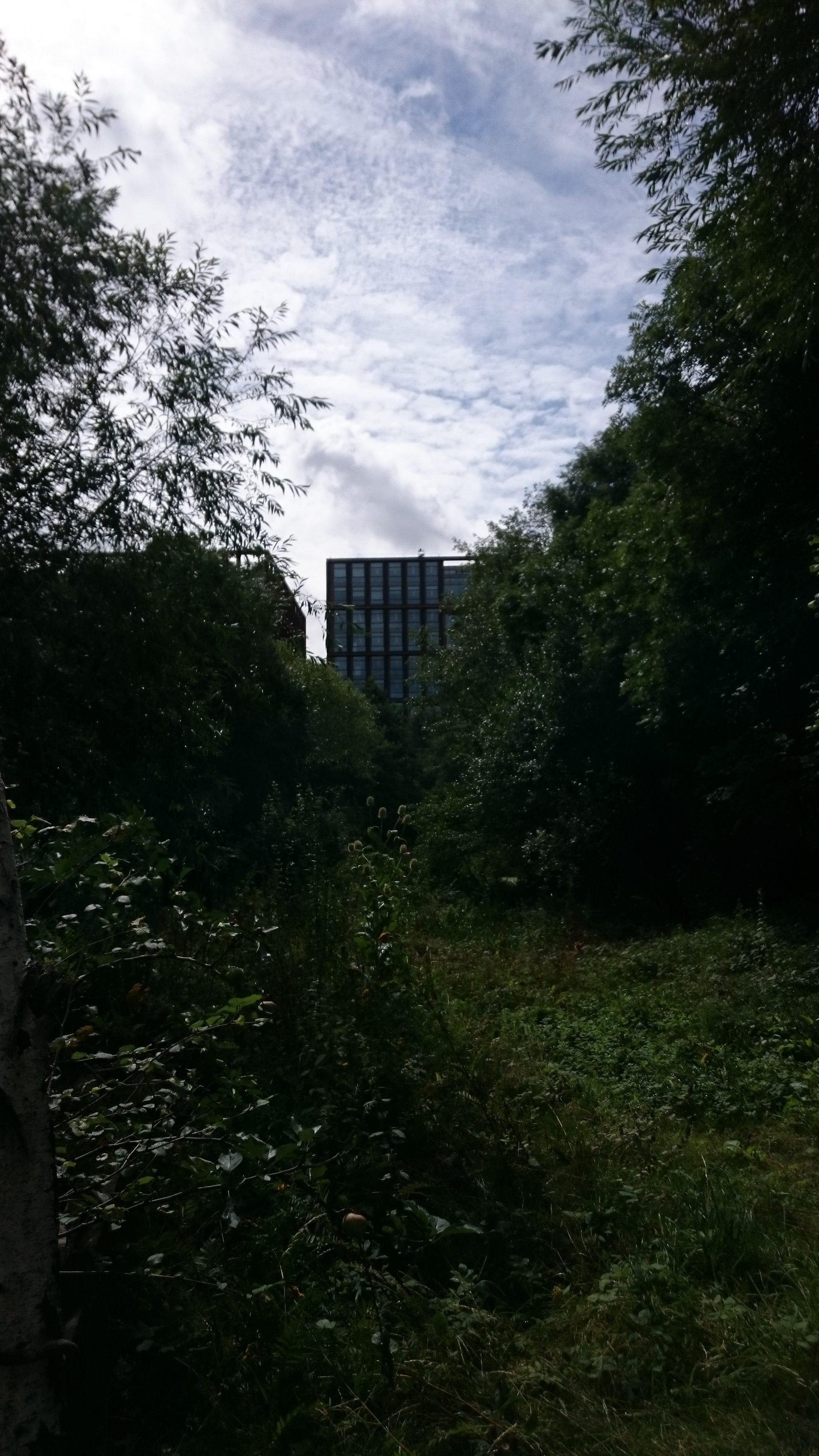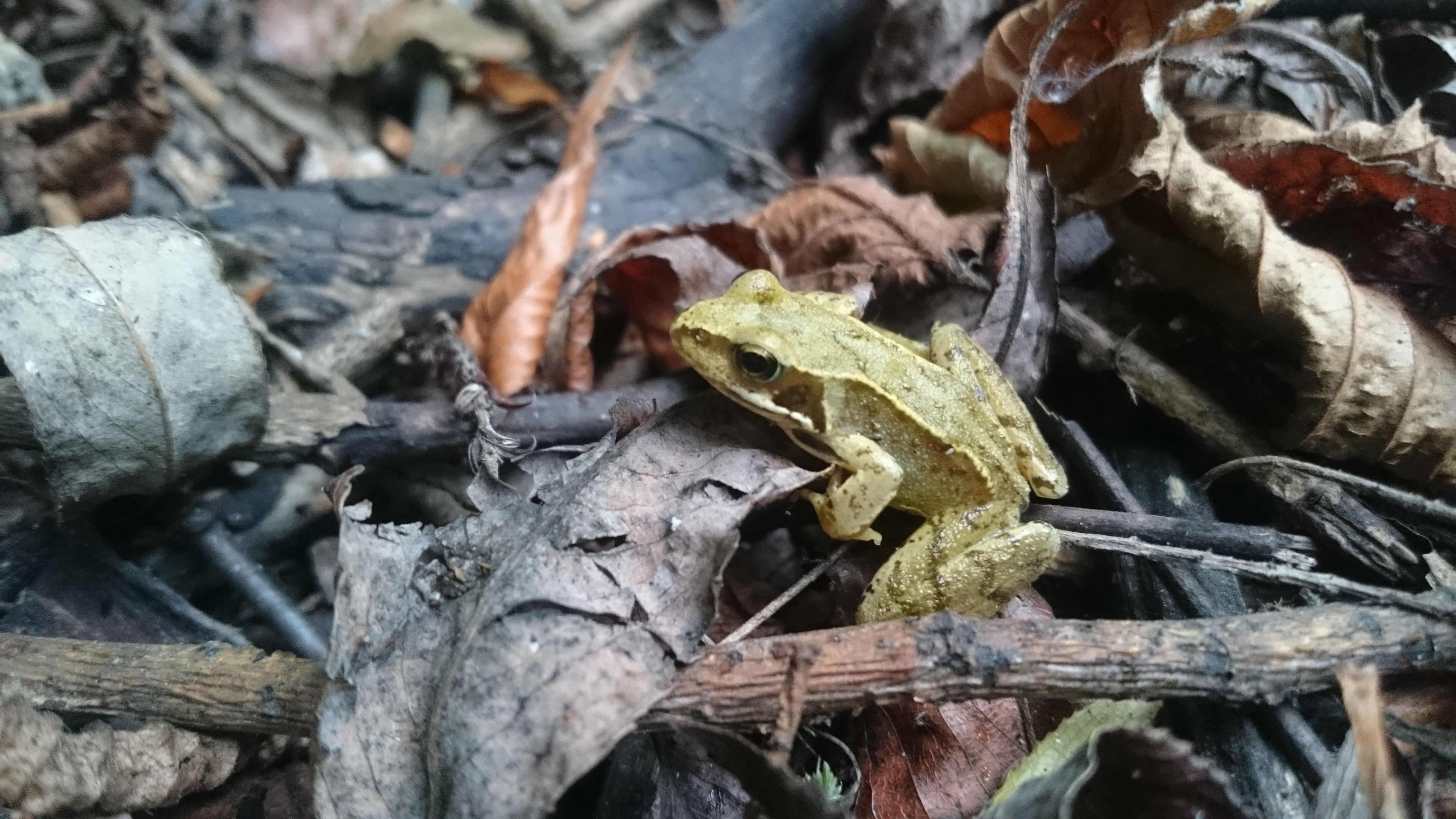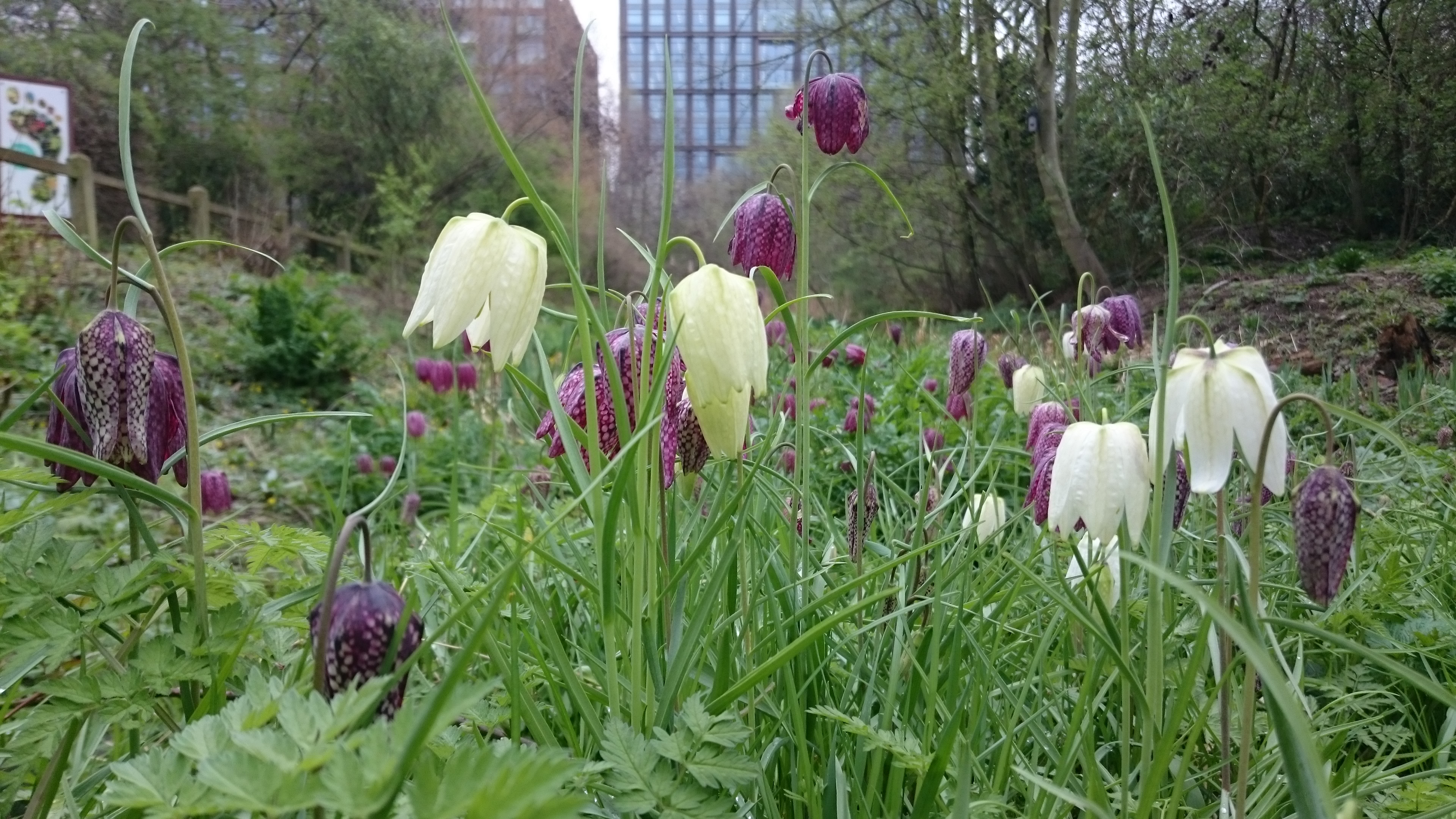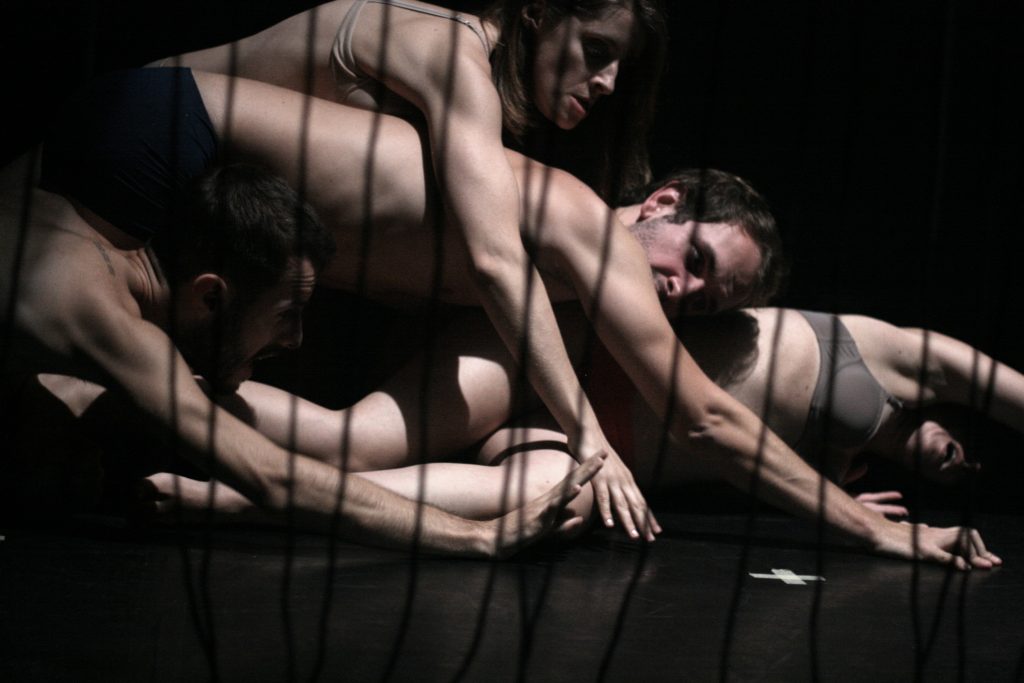Woodchip paths crunch under foot. The distinctive call of a warbler sounds in the reeds nearby. Hazel, willow, field maples and myriad other trees form dense green walls, ivy carpeting the floor around their trunks. A pair of damselflies flit by in a complex dance, before the rattle of the Eurostar train breaks the reverie.
This is Camley Street Natural Park, a small nature reserve that sits between the train lines as they leave St. Pancras International Station, and the Regents Canal. The reserve is right in the middle of the bustling King’s Cross redevelopment area and yet provides a wild space where geese and swans vie for space to raise their young, lesser stag beetles are found under logs, and toads, frogs and newts thrive in the ponds.
‘Green’ may not be the first word that many would choose to describe London but, measured in terms of surface area categorised as green space, Britain’s capital is the greenest city in Europe. Camley Street Natural Park is just one of 41 nature reserves cared for by London Wildlife Trust. These sites range from ancient woodlands such as Sydenham Hill Wood in south London, to hay meadows such as Totteridge Fields in the north, and marshland such as Fray’s Farm to the west of the city. All are beautiful in their own way but, more importantly, many are examples of dwindling habitats, making them important sites for the survival of wildlife in London. Several of the Trust’s reserves are deemed so important that they have been designated as Sites of Special Scientific Interest (SSSI), protecting them by law.
Much of the work of protecting these reserves is carried out by volunteers. In addition to 50 employed staff there are almost a thousand volunteers working across the various sites; cutting reedbeds, clearing scrub, surveying, weeding, litter picking, and all the other activities associated with urban conservation. The UK has a particularly strong volunteer sector, and the wealth of expertise they bring to the Trust is truly inspiring. Volunteers come from a huge range of backgrounds, and everyone is welcome.
London Wildlife Trust also plays an important role in educating young people about nature and wildlife, and this is especially important at sites such as Camley Street Natural Park. Here, in the heart of the city, local children have very little access to natural spaces and young visitors to the nature reserve are fascinated by even the everyday wildlife, such as slugs and snails, having never seen any before. As well as supporting school lessons, these encounters teach important lessons about the beauty and complexity of the natural world, and our increasing responsibility to make sure it is adequately protected.
As with the rest of King’s Cross, Camley Street Natural Park is changing. A new footbridge has just been built, linking Granary Square across the canal to the reserve entrance. Plans are being made to replace the old wooden cabin which serves as a visitor’s centre with something more dynamic and engaging, and which will be better equipped to cope with the inevitable rise in visitor numbers as King’s Cross continues to develop. But the feel of Camley Street Natural Park remains the same; a wild oasis in the heart of London, helping connect Londoners with a natural world that sometimes seems further away than it should. And it will always remain free, as access to nature should be.
Visit http://www.wildlondon.org.uk/reserves/camley-street-natural-park to find out more about the park and the London Wildlife Trust

